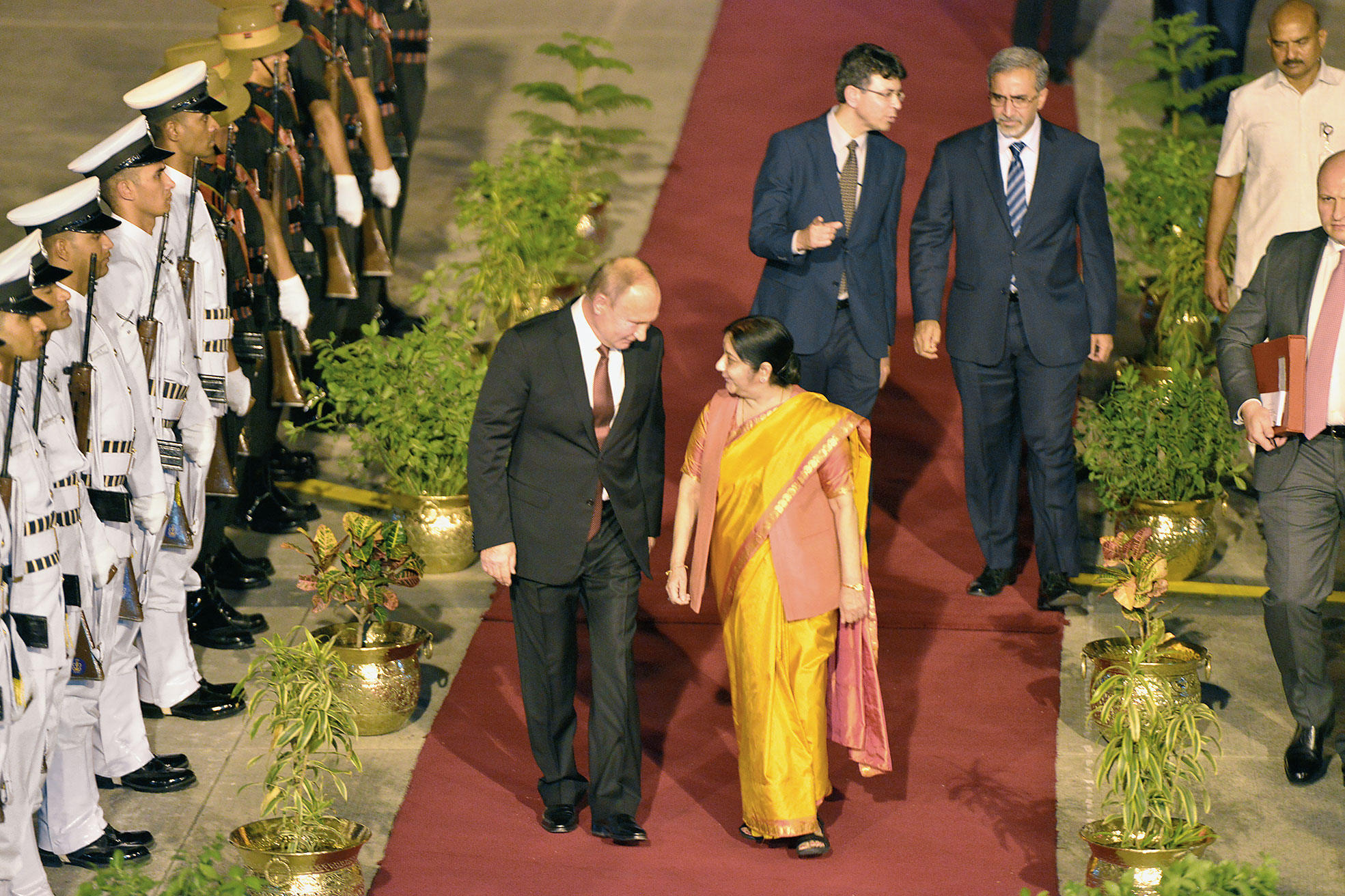President Vladimir Putin arrived in the capital on Thursday for the 19th India-Russia Summit in the hope of inking the S-400 surface-to-air missile deal even as Washington issued a fresh warning of sanctions if New Delhi pressed ahead with the purchase.
The warning came after the Kremlin confirmed on Wednesday that the S-400 deal the two countries have been working on since 2015 was a key element of Putin’s visit.
“The key feature of this visit will be the signing of the agreement to deliver S-400 air defence systems,” Putin’s top foreign policy aide Yury Ushakov was quoted as saying. He pegged the value of the contract at over $5 billion.
The cabinet committee on security is understood to have cleared the purchase of five Almaz-Antei S-400 Triumf surface-to-air missile systems for the Indian Air Force last week, hoping to leverage India’s geopolitical value for the US to get a waiver from Washington.
The US wants India in its corner as Washington seeks to counter China’s growing influence in the Indo-Pacific region. It is with this end in view that the US had resurrected the quadrilateral with India, Japan and Australia last year, a decade after it had been put on the backburner. India has already taken part in two meetings of the quadrilateral at the official level.
Hours after the Kremlin’s announcement, a US state department spokesperson said in Washington the S-400 deal fell in the category of sanctionable transactions. “We urge all our allies and partners to forgo transactions with Russia that would trigger sanctions under Countering America’s Adversaries Through Sanctions Act (CAATSA). The administration has indicated that a focus area for the implementation of CAATSA Section 231 is new or qualitative upgrades in capability — including the S-400 air and missile defence system,” the spokesperson told the media.
Further, according to Washington, the waivers available under the CAATSA were only for legacy purchases — spare parts for previously purchased equipment. India has been in talks with the US seeking a waiver from the sanctions on Russia on the premise that there is a long history of defence industry cooperation between New Delhi and Moscow.
The issue had been discussed at last month’s 2+2 dialogue when foreign minister Sushma Swaraj and defence minister Nirmala Sitharaman had hosted their US counterparts Mike Pompeo and James Mattis, but India didn’t get a categorical assurance.
“Our effort here is not to penalise great strategic partners like India, a major defence partner,” secretary of state Pompeo had told reporters. “The sanctions aren’t intended to adversely impact countries like India. They are intended to have an impact on the sanctioned country.”
In fact, Washington has been giving out mixed signals, sometimes keeping the window open like Pompeo did while otherwise speaking the language of Wednesday’s state department warning.
Sitharaman, meanwhile, cut short her visit to Central Asia and returned to the capital on Thursday and was closeted in a meeting at the external affairs ministry ahead of Putin’s arrival.
Both ministries remained tight-lipped till late in the night about the S-400 deal.











